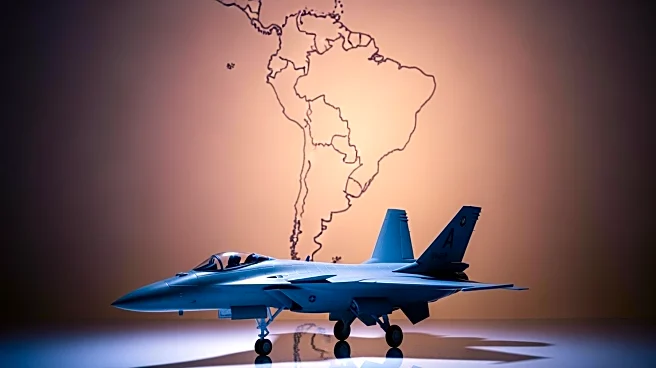What's Happening?
President Trump has denied a report by The Wall Street Journal that U.S. B-1 bombers were sent near Venezuela amid escalating tensions with the country led by President Nicolás Maduro. The report claimed that two B-1 bombers flew near Venezuelan territory,
remaining in international airspace. Trump refuted the accuracy of this report but expressed dissatisfaction with Venezuela. The U.S. has been conducting military operations in the region, targeting drug-smuggling vessels as part of a broader campaign against drug cartels. These operations have been described as one of the largest U.S. military efforts in the region since the 1960s.
Why It's Important?
The denial by President Trump highlights the sensitive nature of U.S.-Venezuela relations, particularly concerning military activities. The U.S. has been actively targeting drug cartels, which it has labeled as foreign terrorist organizations, allowing for more aggressive actions. This situation underscores the ongoing geopolitical tensions in the region, with potential implications for U.S. foreign policy and military strategy. The operations against drug trafficking are part of a larger effort to curb the flow of illicit drugs into the U.S., which has significant domestic implications given the ongoing opioid crisis.
What's Next?
The U.S. is likely to continue its military operations targeting drug cartels in the Caribbean and Pacific regions. President Trump has indicated that these efforts will intensify, with potential for further military actions. The situation may lead to diplomatic discussions with countries in the region, as some have called for adherence to international laws governing military actions in international waters. The U.S. administration may also face scrutiny from domestic and international observers regarding its military strategies and their alignment with international norms.















